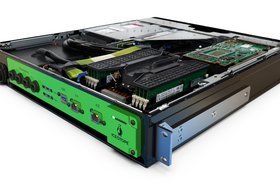IBM has signed an agreement with both the government of Quebec and the government of Canada to strengthen the country’s semiconductor industry.
The agreement will see IBM and the two governments invest C$187 million (US$137m) in the company’s Bromont plant in Quebec to bolster the country’s assembly, testing, and packaging capabilities.
IBM will undertake research and development at the facility to improve manufacturing and assembly processes and further support the packaging of semiconductors. The company has also pledged to collaborate with small and mid-sized Canadian businesses to help sustain the sector long-term.
“IBM has long been a leader in semiconductor research and development, pioneering breakthroughs to meet tomorrow’s challenges. With the demand for compute surging in the age of AI, advanced packaging and chiplet technology are becoming critical for the acceleration of AI workloads,” said Darío Gil, IBM SVP and director of research.
Prime Minister of Canada, Justin Trudeau, added: “Today’s announcement is a massive win for Canada and our dynamic tech sector. It will create high-paying jobs, invest in innovation, strengthen supply chains, and help make sure the most advanced technologies are Canadian-made. Semiconductors power the world, and we’re putting Canada at the forefront of that opportunity.”
Opened in 1972, IBM Canada’s Bromont plant is one of the biggest chip assembly and testing facilities in North America. It is the company’s sole plant in Canada and oversees the assembly of 200 types of products using 800 manufacturing processes.
According to the company, the Bromont plant works closely with IBM’s facilities at the Albany NanoTech Complex and throughout New York's Hudson Valley to further semiconductor R&D.
In February 2024, IBM announced it would be installing a cluster of IBM Artificial Intelligence Unit prototype chips at the University at Albany in New York, making the university one of the biggest AI test beds in the US and enabling students and researchers to run complex AI models.







